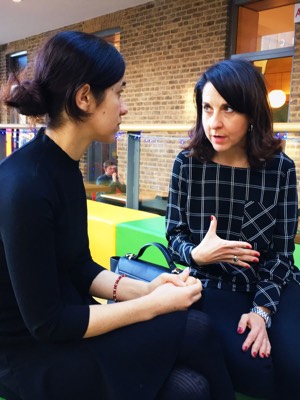One of the best questions I have been asked since becoming the MP for Leicester West is: “Why do we have laws?”
It came from a young boy at Glebelands school, during one of their morning assemblies.
Every Friday I try and visit one of the primary schools in my constituency. I spend time with the head and teachers, to discuss the improvements they are making and the issues and challenges they face.
I also take part in the assembly, and talk to the children about my job as their Member of Parliament and answer any questions they have.
My weekly school visits are a top priority for me as a local MP, for two main reasons.
First, I am passionate about supporting schools in my constituency to make even bigger improvements. A good education is a springboard for life, helping children fulfil their potential, build a life for themselves, and contribute to society as a whole.
I can help parents and schools by taking forward any issues they raise with me, either here in Leicester or nationally in Westminster.
Second, I want to try and help improve understanding about politics and democracy. An important part of this is explaining my role as a local MP and what this means in practical terms for individuals, families and local communities.
Ensuring young people know from an early age that they can have a say in decisions that affect their lives, by exercising their right to vote, is absolutely vital. That is why I encourage all schools in my constituency to come and visit the Houses of Parliament and find out about the work of the Parliament Education Service.
This brilliant free service works with schools and MPs to support young people in developing their understanding of Parliament. As well as organising visits for children, they run events and training for teachers and provide classroom resources, including online.
The Parliament Education Service aims to inform young people about the role, work and history of Parliament, improve understanding about the relevance of Parliament and democracy, and give young people the skills and knowledge they need to take part in the democratic process.
Of course being an MP isn’t just about voting on legislation in Parliament. We also run campaigns, take up individual cases, and work closely with local businesses, public services and voluntary and community groups.
But helping young people understand our role in Parliament and the democratic process is really important.
Which leads me back to the question I was asked at Glebeland’s primary school: “Why do we have laws?”
I decided the best way to answer was to ask the young boy why he thought his school had rules. He said ‘so we can all get along with each other’. I thought that was a pretty good answer, don’t you?














